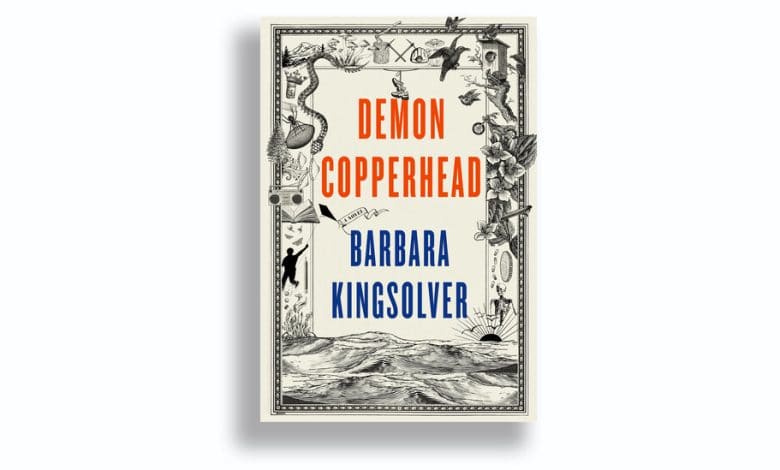Book Club: Let’s Talk About Barbara Kingsolver’s ‘Demon Copperhead’

Subscribe: Apple Podcasts | Spotify | How to Listen
Barbara Kingsolver’s novel “Demon Copperhead,” a riff on “David Copperfield” that moves Charles Dickens’s story to contemporary Appalachia and grapples engagingly with topics from poverty to ambition to opioid addiction, was one of the Book Review’s 10 Best Books of 2022. And — unlike an actual copperhead — “Demon Copperhead” has legs: Many readers have told us it was their favorite book in 2023 as well.
In this week’s spoiler-filled episode, the Book Review’s MJ Franklin talks with his colleagues Elisabeth Egan (also an editor at the Book Review) and Anna Dubenko, The Times’s newsroom audience director, about Kingsolver’s novel and its enduring appeal.
We’d love to hear what you loved (or didn’t) about “Demon Copperhead.” Share those thoughts in the comments and we’ll try to weigh in.
Let us get you started…
Elisabeth Egan: “I read it in three days. I did not put it down. I could not stop thinking about it. I read a pre-publication galley, so when I read it, I didn’t have anyone to discuss it with and that almost killed me.
“And since the book came out, I’ve recommended this book to more people than I think I’ve ever recommended a book to. And I’ve heard back from more of the people who I recommended it to than I ever have with any other book.”
MJ Franklin: “When I first heard the premise of this book — using Dickens to tell the story of the opioid crisis — I was like, this sounds really cool and really ambitious, and I’m excited to see how it pulls this off. But I was also a little bit fearful and had a little bit of trepidation because it could be dutiful. It has this responsibility to Dickens. It has this responsibility to covering the serious topic, and I felt like it was saddled with so much other than ‘Just tell a good story.’
“And I’m happy to say I did not in the end feel like this was a dutiful book. It feels lively, it feels propulsive. It feels searching, it feels pointed. There is a very strong political message here, but I feel like it’s worked in, for the most part, pretty seamlessly.”
Send your feedback about this episode, and about the Book Review’s podcast in general, to [email protected].
